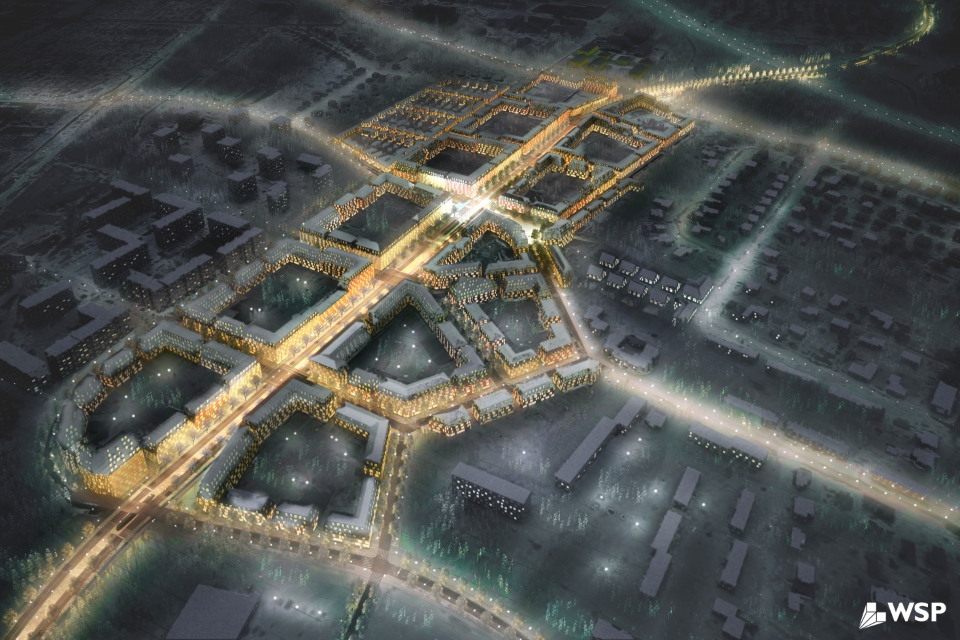Learned people lived in Oulu already 400 years ago. In the beginning of 17th century, locals were studying logic from Latin school books. Now there are more than 200,000 residents in Oulu with educational opportunities that are, also internationally, extensive and of high quality. More than 30,000 students study in higher and secondary education establishments, but this is our pride and joy: more than 90% of us in the 15 to 54-year-old category hold a university degree or upper secondary level diploma.
Also the fact that by October this year, building permits were granted for more than 270,000m2 of floor space, which is more than 46% increase compared to that of year before, and tells about strong growth in our region. The number of building permits for housing is actually 68% higher than last year. Especially new residential buildings are being constructed in the city centre.
Building permits granted for office and similar construction is 53% more in square metres than the previous year. New office, industrial and storage facilities are required. Need for new business facilities and confidence in business prospects are reflected also in the exceptionally high number of reservations for industrial building sites which is now at its highest for years. Reservations for office and industrial land is already doubled compared to the corresponding numbers last year. Mr Pekka Seppälä, the Head of Building Control Department in Oulu, believes that by the end of the year the City will grant building permits up to 1.5 billion euros in market value.
Future opportunities
Oulu is the logistic centre of Northern Scandinavia. The airport is the second only to Helsinki and this year will see a record-breaking number of passengers. Passengers can choose from 100 weekly flight options between Oulu and Helsinki and furthermore, there are easy flight connections to Luleå in Sweden and Tromsø in Norway.
The general plan of New Oulu, already partly in effect, is built around the idea of a Sustainable Northern City. Ms Paula Paajanen, General Planning Manager, says that the general plan strongly focuses on building compact and diverse urban structures. The plan makes provision for an increase of a total of 30,000 new residents and 15,000 new jobs by 2030. The general plan provides a number of location options for trade, offices and other places of work as well as industry and for instance places like data centres and other venues requiring vast space.
New visions of northern university campus and Kontinkangas Campus for Health Care and Social Welfare Services allow for not only public but private services and business facilities as well. The northern road, Kemintie, leading to the centre can be turned into a city boulevard where ample supplementary building and new services would locate by a tramway.


